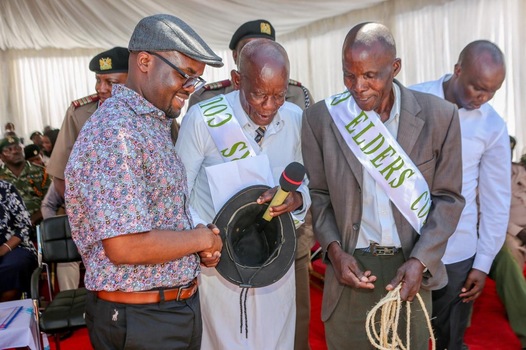The Interior Ministry has proposed the introduction of monthly allowances for village elders, recognizing their vital role in community leadership across the country. Historically known as headmen or wazee wa mtaa, village elders have long been the backbone of local governance, providing essential services and acting as the government’s representatives at the village level without any formal compensation.
Interior Cabinet Secretary Kithure Kindiki emphasized the importance of village elders in rural administration and the Kenya Kwanza Administration’s commitment to formally recognizing and supporting these local leaders through remuneration.
The proposed reform aims to amend the National Government Coordination Act No. 1 of 2013, designating a village as the fundamental administrative unit and officially recognizing village elders as National Government Administrative Officers.
Under the proposed National Government Coordination (Amendment) Bill, village elders will receive allowances determined by the Public Service Commission in consultation with the Salaries and Remuneration Commission.
Kenya currently has 106,072 villages and 9,045 sub-locations, and the amendment seeks to ensure that each village is represented by a formally recognized elder who will be compensated for their services.
The proposed policy framework recommends a phased implementation of a monthly allowance of up to Ksh. 7,000, depending on Kenya’s economic conditions, for village elders across the country.
A start-off stipend of Ksh. 2,000 per month is proposed, which is equivalent to the disbursement given to elders in the Inua Jamii Programme.
This approach will enable the Ministry of Interior and National Administration to evaluate the financial impact and present it to the National Treasury for budgetary allocation.
The framework also outlines comprehensive guidelines for the recruitment, engagement, and remuneration of village elders, addressing key concerns such as terms of service, functions, recruitment criteria, disciplinary actions, and conditions for vacating office.
If implemented, this policy will formally recognize village elders as government officers on special duty, thereby elevating their status and ensuring they are compensated for their invaluable contributions to the community.







Can you be more specific about the content of your article? After reading it, I still have some doubts. Hope you can help me.
Your article helped me a lot, is there any more related content? Thanks!